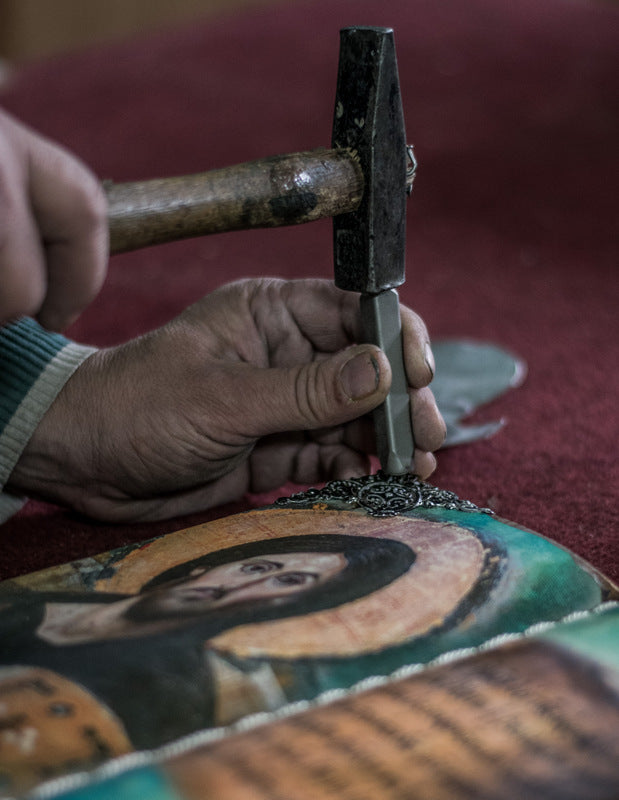Love it? Add to your wishlist
Your favorites, all in one place. Shop quickly and easily with the wishlist feature!
[title]
[message]TheHolyArt
Couldn't load pickup availability
This byzantine icon is a lithography with double varnish layer to ensure vivid colors and waterproof properties depicting Saint Kenneth, is a god inspired artwork abiding to the Athonian technique that was gives this icon unique religious and aesthetic value.
Saint Kenneth, also called Canice, or Kenny, Latin Canicus, Gaelic Chainnech, (born 515/516 or 521/527, Glengiven, County Derry, Ire.—died 599/600, Aghaboe, County Leix; feast day October 11), Irish abbot, monastic founder, and missionary who contributed to the conversion of the Picts. He is one of the most popular Celtic saints in Scotland (where he is called Kenneth) and in Ireland (where he is called Canice) and patron saint of the diocese of Ossory in Ireland.
Much of what has been written about his life is based on tradition. He is said to have studied under the abbots Finnian at Clonard, County Meath (543); Mobhi at Glasnevin, County Dublin (544); and Cadog at the important Welsh monastery at Llancarfan, Glamorganshire, where he was ordained priest in 545. He is thought to have visited Rome.
Kenneth was a close friend and associate of the celebrated Columba of Iona, whom he accompanied to the Scottish mainland to help Christianize the Picts. Near Inverness they met the Pictish king Brude Mac Maelchon, whom Kenneth allegedly paralyzed with the sign of the cross when he threatened them; Brude and his kingdom subsequently were converted.
Kenneth is also known to have ministered extensively in the offshore Scottish Hebrides islands. Testimony to his influence and travels is found in monastic and church ruins (e.g., Kil-Chainnech on Tyree Island) and places dedicated to his name, particularly the islet Inchkenneth. According to tradition, he established the ecclesiastical settlement that later developed into the royal Scottish burgh of St. Andrews, Fife.
Returning to Ireland (c. 577), Kenneth founded monasteries at Aghaboe and at Kilkenny, the capital of










We intentionally and respectfully design our pieces to transcend passing trends. We believe in creating timeless items that will uplift your Spirit and bring you closer to Him.
"James 4:8 (NLT) says,“Come close to God, and God will come close to you. Wash your hands, you sinners; purify your hearts, for your loyalty is divided between God and the world."